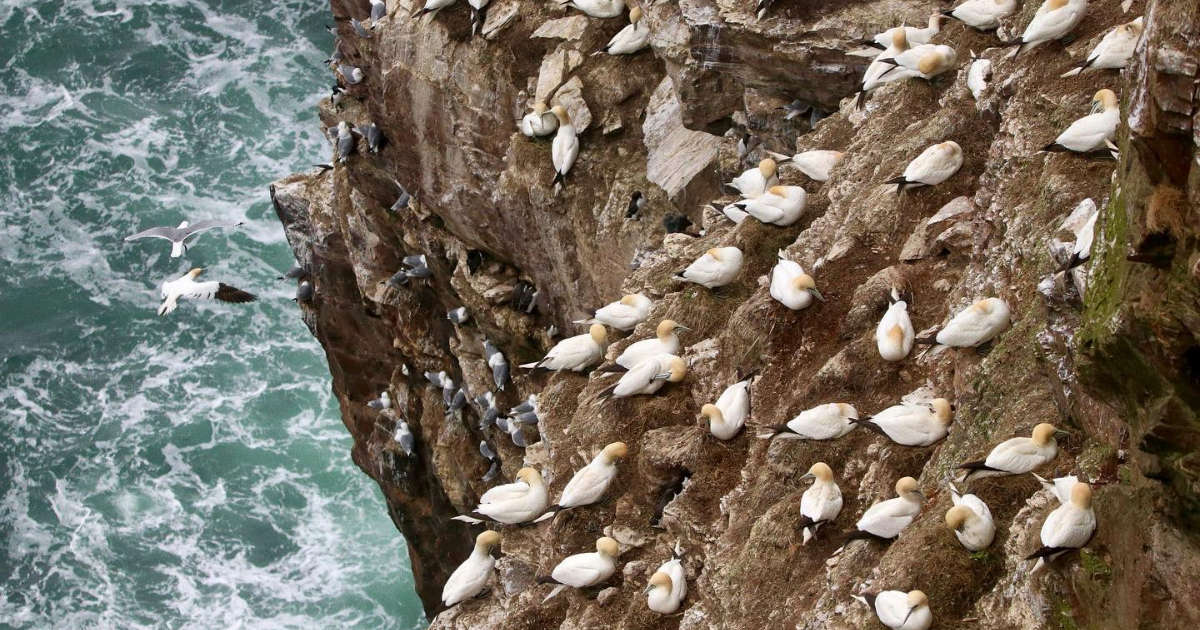
Populations of Scotland's breeding sea birds could take decades to recover their numbers amid an avian flu outbreak, according to RSPB Scotland.
Thousands of birds have been found dead on beaches around the country as a deadly strain of the disease spreads through populations.
Some key colonies of great skuas and gannets have lost up to 50 and 25 per cent of their numbers respectively, according to RSPB Scotland. Both birds are listed on the UK Birds of Conservation Concern Amber List, used to highlight birds whose conservation status is of "moderate concern".
Robyn Stewart, a species and habitat officer at the charity, says the current strain is "unlike anything [they've] ever seen before".
She adds: "There's a deep sense of concern in terms of what this means long term. We're seeing die offs to quite a high degree, so there's mass mortalities. We're talking about thousands of birds being lost here.
"We're also seeing quite considerable die offs in other sea birds such as artic tern, common tern and some common guillemots as well. So it's a real concern because there's new species being infected all the time."
Robyn told Original 106 that the flu will have "an effect on populations for generations" with some species taking decades to recover their numbers. This is while they'll also contend with other existing issues such as the climate crisis, change of food sources and plastic pollution,
The charity is also urging people and families to be cautious if they plan to head to the coast over the summer holidays, particularly if they're planning to visit seabird colonies or areas where birds are breeding.
Robyn said: "If you go to any coastal areas, stick to the main paths because there's a risk that people walking through can actually spread the virus.
"Obviously disturbance of birds during the breeding season is something we'd like to discourage anyway. But it's even more pertinent with this strain of avian influenza spreading the way it is."
The UK Health Security Agency has advised that the risk to humans is very low, but people should not touch sick or dead birds.
If found, people should report any dead birds to Defra on 0345 9335577.


 John Swinney announces SNP leadership bid
John Swinney announces SNP leadership bid
 Uber applied to launch in Aberdeen
Uber applied to launch in Aberdeen
 New scanners streamline security at Aberdeen Airport
New scanners streamline security at Aberdeen Airport
 Jimmy Thelin appointed new manager of Aberdeen Football Club
Jimmy Thelin appointed new manager of Aberdeen Football Club
 13°C
13°C
 12°C
12°C